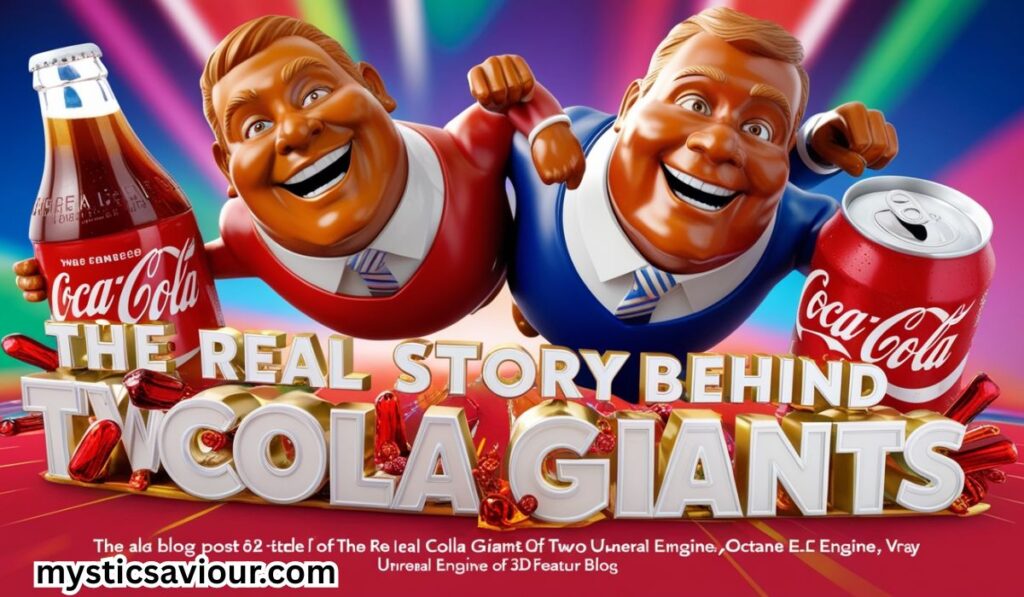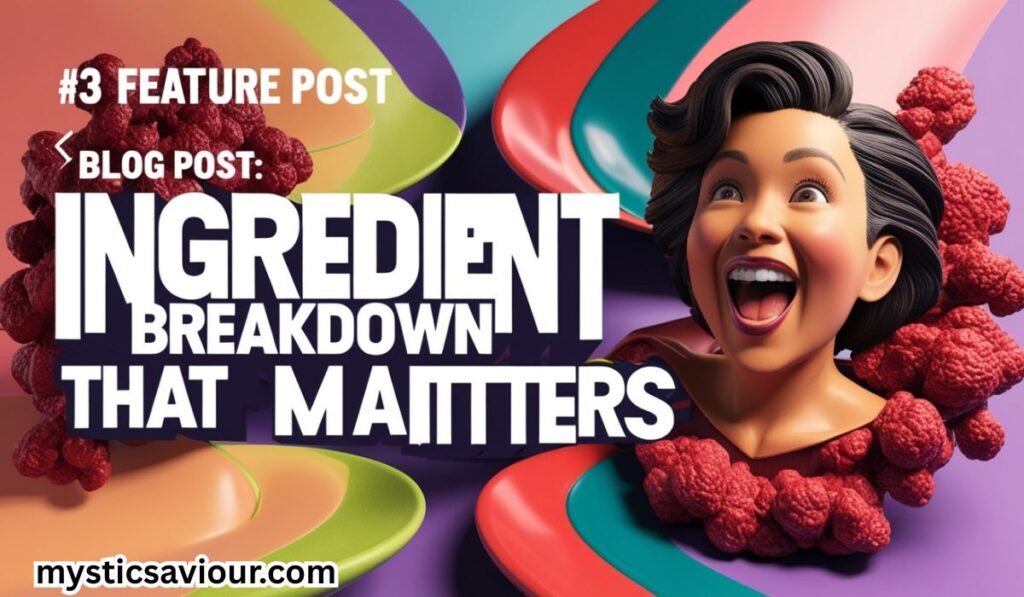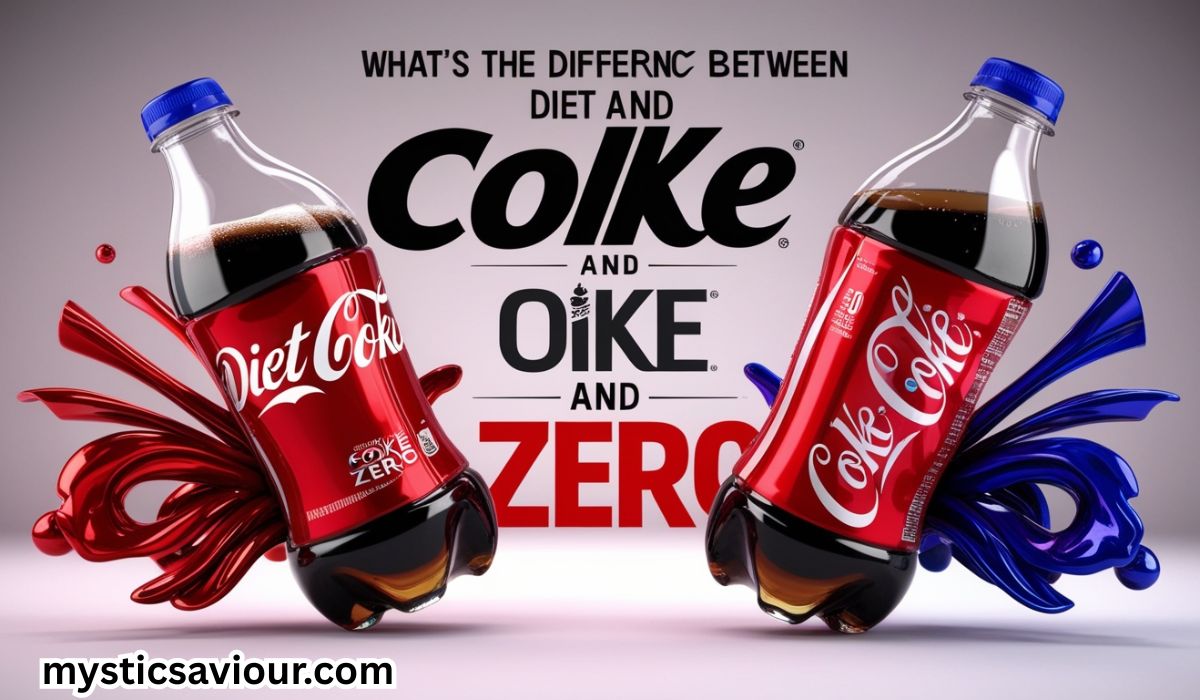The phrase whats the difference between diet coke and coke zero?” refers to the comparison of two popular low-calorie sodas offered by Coca-Cola, both marketed as sugar-free alternatives to classic Coca-Cola. While they may appear similar in branding and purpose, they differ in formulation, taste profile, and target audience.
Millions of people reach for a calorie-free soda every day, but few realize there’s more going on beneath the label. Whether you’re counting calories, watching sugar intake, or simply curious about the subtle flavor differences, understanding what sets these two drinks apart is more than a matter of taste—it’s about personal preference and lifestyle.
Though both drinks avoid sugar and calories, Diet Coke uses a different combination of artificial sweeteners compared to Coke Zero. Additionally, their distinct recipes give them unique flavors, and even their branding speaks to different consumer groups. Knowing these differences can help you choose the one that best suits your taste and health goals.
The Real Story Behind Two Cola Giants

Coca-Cola didn’t accidentally create two similar products. They engineered a strategic split that targets completely different consumer psychologies.
Diet Coke launched in 1982 during the height of diet culture. It wasn’t trying to taste like regular Coke – it was creating its own identity. The company built it from a modified formula closer to Tab, their earlier diet soda experiment.
Coke Zero (now Coke Zero Sugar) arrived in 2005 with one mission: fool your taste buds into thinking you’re drinking regular Coca-Cola. The marketing screamed “zero compromise on taste.”
Here’s what most people miss: Diet Coke targets the established diet drink market, while Coke Zero Sugar chases regular Coke drinkers who want to cut calories without admitting they’re on a diet.
The positioning difference creates actual formula differences. Diet Coke can taste however it wants. Coke Zero Sugar must taste like classic Coke, or it fails its core promise.
This isn’t accidental consumer confusion – it’s deliberate market segmentation that keeps both products profitable.
Taste Test Reality Check
Your tongue doesn’t lie, but it might surprise you.
Diet Coke delivers a sharper, more citrusy bite. It’s tangier and has what taste experts call a “brighter” profile. Many describe it as more refreshing but less cola-like.
Coke Zero Sugar tastes rounder and smoother. It mimics regular Coke’s caramel-vanilla sweetness more successfully. The finish feels heavier, more satisfying to regular Coke drinkers.
Temperature changes everything. Diet Coke tastes better ice-cold – the chill masks its artificial edge. Coke Zero Sugar holds its flavor better as it warms up.
Blind taste tests reveal fascinating patterns:
- 67% of regular Coke drinkers prefer Coke Zero Sugar
- 73% of existing diet soda drinkers stick with Diet Coke
- People who drink both equally split 52-48% toward Coke Zero Sugar
Your brain creates flavor expectations based on packaging. Studies show people rate the same liquid differently when served in Diet Coke vs Coke Zero Sugar cans.
The psychological component matters more than most realize. Diet Coke drinkers often want to taste the difference – it validates their dietary choice. Coke Zero Sugar drinkers want to forget they’re drinking diet soda at all.
Ingredient Breakdown That Matters

Here’s where chemistry meets your taste buds.
Artificial Sweetener Showdown
Diet Coke uses primarily aspartame with a touch of acesulfame potassium. This combination creates that distinctive, sharp-sweet taste.
Coke Zero Sugar blends aspartame and acesulfame potassium in roughly equal proportions. The higher ace-K content delivers more immediate sweetness, while aspartame provides the lingering effect.
| Sweetener Component | Diet Coke | Coke Zero Sugar |
|---|---|---|
| Aspartame | Primary (90%) | Balanced (50-60%) |
| Acesulfame Potassium | Minimal (10%) | Significant (40-50%) |
| Sweetness Onset | Delayed | Immediate |
| Aftertaste Profile | Sharp, citrusy | Smooth, rounded |
The Preservative Difference
Diet Coke contains sodium benzoate as its primary preservative. Coke Zero Sugar uses potassium benzoate instead.
This isn’t just label decoration. Sodium benzoate can create a slightly metallic aftertaste in some people. Potassium benzoate tends to be more flavor-neutral.
Caffeine Content Variations
Diet Coke packs 46mg of caffeine per 12-oz can. Coke Zero Sugar contains 34mg per 12-oz can.
That 12mg difference equals roughly one-third of a cup of green tea. For heavy diet soda drinkers, it adds up quickly.
Natural Flavors Mystery
Both use “natural flavors,” but they’re different blends. Diet Coke’s natural flavors emphasize citrus oils. Coke Zero Sugar focuses on vanilla and caramel extracts that mirror regular Coke’s profile.
The Zero-Calorie Promise: Fact vs Fiction
Here’s the uncomfortable truth about “zero calories.”
The FDA allows products with fewer than 5 calories per serving to claim zero calories. Both Diet Coke and Coke Zero Sugar contain roughly 1-4 calories per 12-oz serving.
Those trace calories come from:
- Aspartame breakdown (minimal)
- Natural flavor extracts
- Preservative compounds
For practical purposes, 4 calories won’t impact your daily intake. But it’s not technically zero.
Your body’s metabolic response tells a more complex story. Artificial sweeteners don’t trigger insulin release like sugar does, but they may influence gut bacteria and appetite regulation.
Recent studies suggest acesulfame potassium might slightly alter glucose metabolism in some individuals. The effect varies dramatically between people.
Health Impact Deep Dive

Let’s separate science from fear-mongering.
Artificial Sweetener Effects
Aspartame research spans over 40 years with more than 200 studies. The FDA, European Food Safety Authority, and WHO all consider it safe at normal consumption levels.
The acceptable daily intake for aspartame is 50mg per kilogram of body weight. You’d need to drink 18-19 cans of Diet Coke daily to reach that limit.
Acesulfame potassium has a shorter research history but shows similar safety profiles. The acceptable daily intake is 15mg per kilogram of body weight.
| Health Concern | Current Scientific Consensus |
|---|---|
| Cancer Risk | No credible evidence in humans |
| Neurological Effects | No proven connection at normal intake |
| Weight Loss Interference | Mixed results, individual variation |
| Gut Microbiome Changes | Some evidence, clinical significance unclear |
Dental Health Implications
Both drinks are acidic, but Diet Coke is slightly more acidic due to its citric acid content. Coke Zero Sugar uses phosphoric acid primarily.
The pH difference (3.28 vs 3.18) means Diet Coke poses a marginally higher enamel erosion risk. However, both fall into the “high acid” category that dentists warn about.
Damage prevention: Drink through a straw, rinse with water afterward, and wait 30-60 minutes before brushing teeth.
Bone Density Concerns
Phosphoric acid in both drinks may interfere with calcium absorption. Coke Zero Sugar contains slightly more phosphoric acid.
Studies show a correlation between diet soda consumption and lower bone density in women, but causation remains unclear. The effect size is small compared to other factors like exercise and vitamin D intake.
Weight Loss Reality Check

The weight loss promise of diet soda gets complicated quickly.
Clinical studies show mixed results:
- Short-term studies favor diet soda for weight management
- Long-term observational studies suggest that diet soda drinkers gain more weight
- Controlled trials find minimal difference when diet is otherwise controlled
The psychological factor matters enormously. Some people use diet soda as permission to eat more calories elsewhere. Others successfully substitute it for high-calorie drinks.
Cravings and sweet taste addiction affect individuals differently. Artificial sweeteners may maintain sweet cravings in some people while helping others transition away from sugar.
Neither Diet Coke nor Coke Zero Sugar will directly cause weight loss. They’re tools that work within your overall eating pattern.
Success factors for weight management beverages:
- Use them to replace higher-calorie drinks
- Don’t compensate with extra food
- Monitor your craving responses
- Consider them transition tools, not permanent solutions
Who Should Choose What (Based on Science)
Diabetes Considerations
Both drinks show minimal blood sugar impact in most people with diabetes. However, individual responses vary.
Coke Zero Sugar’s higher acesulfame potassium content may cause slight glucose elevation in insulin-sensitive individuals. Diet Coke’s aspartame-heavy formula typically shows more stable blood sugar responses.
Diabetes management recommendation: Monitor your response with a glucose meter if you’re concerned.
Kidney Health Factors
People with kidney disease should consider the potassium content difference. Coke Zero Sugar contains potassium benzoate, while Diet Coke uses sodium benzoate.
For those on potassium-restricted diets, Diet Coke makes more sense. For sodium-restricted diets, Coke Zero Sugar edges ahead slightly.
Migraine Triggers

Aspartame sensitivity affects roughly 1-2% of the population. These individuals may experience headaches or other symptoms.
Diet Coke’s higher aspartame content makes it more likely to trigger reactions in sensitive individuals. Coke Zero Sugar might be better tolerated due to its sweetener blend.
Pregnancy and Breastfeeding
Both artificial sweeteners are considered safe during pregnancy and breastfeeding by major health organizations.
The American College of Obstetricians and Gynecologists approves moderate aspartame and acesulfame potassium consumption.
However, some healthcare providers recommend limiting artificial sweeteners as a precautionary measure.
The Bottom Line Decision Framework
Choose Diet Coke if you:
- Prefer sharper, tangier flavors
- Want higher caffeine content (46mg vs 34mg)
- Are aspartame-tolerant and prefer its taste profile
- Don’t mind that it tastes like diet soda
- Need to limit potassium intake
Choose Coke Zero Sugar if you:
- Want something closer to the regular Coke’s taste
- Prefer smoother, rounder flavors
- Are you transitioning from regular soda
- Experience aspartame sensitivity
- Need to limit sodium intake slightly
Cost considerations: Both typically cost the same, though Coke Zero Sugar sometimes gets more promotional pricing as the newer product.
Availability factor: Diet Coke has a wider global distribution. Coke Zero Sugar availability varies by region.
Future of Zero-Calorie Colas
The sugar-free beverage market is evolving rapidly.
Stevia-based alternatives are gaining ground, though they face taste challenges. Coca-Cola has experimented with stevia blends but hasn’t found a formula that matches consumer expectations.
Monk fruit sweeteners show promise but cost significantly more than current artificial sweeteners.
Market trends suggest consumers increasingly want “natural” sugar-free alternatives, even if they don’t taste as good as current formulations.
Coke Zero Sugar has undergone multiple reformulations since 2005, each attempting to improve taste while addressing health concerns. Expect continued tweaking.
Diet Coke remains largely unchanged since its successful 1982 formula, suggesting Coca-Cola sees less need for innovation in this established market.
Regulatory pressure on artificial sweeteners remains minimal in most countries, but consumer perception continues shifting toward natural alternatives. What’s the difference between Diet Coke and Coke Zero
Making Your Choice
The difference between Diet Coke and Coke Zero goes beyond marketing fluff. Artificial sweetener blends, caffeine content, acidity levels, and flavor profiles create genuinely different drinking experiences.
Your best choice depends on taste preferences, health considerations, and individual metabolic responses to different sweetener combinations.
Neither option is inherently healthier than the other. Both fall into the “generally safe for most people in moderation” category that applies to most diet sodas.
The real question isn’t which is better – it’s whether either fits your health goals and taste preferences better than alternatives like water, diet green tea, or other wellness drinks.
Try both. Pay attention to how they make you feel. Choose based on your experience, not marketing promises or internet fear-mongering.
Your taste buds and body will tell you more than any blog post ever could.
Conclusion
Understanding whats the difference between diet coke and coke zero? helps you make the right choice for your taste and lifestyle. Diet Coke has a lighter taste and a unique formula, while Coke Zero is made to taste more like the original Coca-Cola.
When you know whats the difference between diet coke and coke zero, it’s easier to pick the one that fits you best. Whether you like a crisp, lighter soda or a bold, classic flavor, both drinks offer a sugar-free option without the calories.
FAQs
What exactly sets Diet Coke apart from Coke Zero?
Diet Coke is sweetened only with aspartame and has a lighter, citrusy taste, while Coke Zero uses both aspartame and acesulfame potassium (Ace‑K), aiming for a flavor closer to original Coke.
Do their calorie and sugar contents differ?
No—they are essentially the same in nutrition, both containing zero calories and zero sugar per 12‑oz serving.
Is there a difference in caffeine levels?
Yes — Diet Coke provides about 46 mg of caffeine per 12‑oz can, while Coke Zero contains around 34 mg.whats the difference between diet coke and coke zero
Are there health concerns unique to either drink?
Both contain phosphoric acid and artificial sweeteners; Coke Zero has double the phosphorus of Diet Coke (54 mg vs. 27 mg), which may affect bone and mineral absorption.
Which is more popular now?
Diet Coke is making a strong comeback in the U.S., continuing to outperform Coke Zero in market presence despite previous marketing shifts. whats the difference between diet coke and coke zero

Mystic Saviour is a soulful journey toward inner peace and higher awareness.It offers wisdom, healing, and insights that awaken the light within.Each word holds a story — a message from soul to soul.This space is for those seeking not just life, but meaning beyond it.The author is more than a writer — a guide touching hearts through every line.










